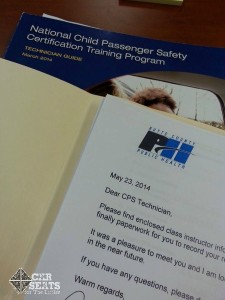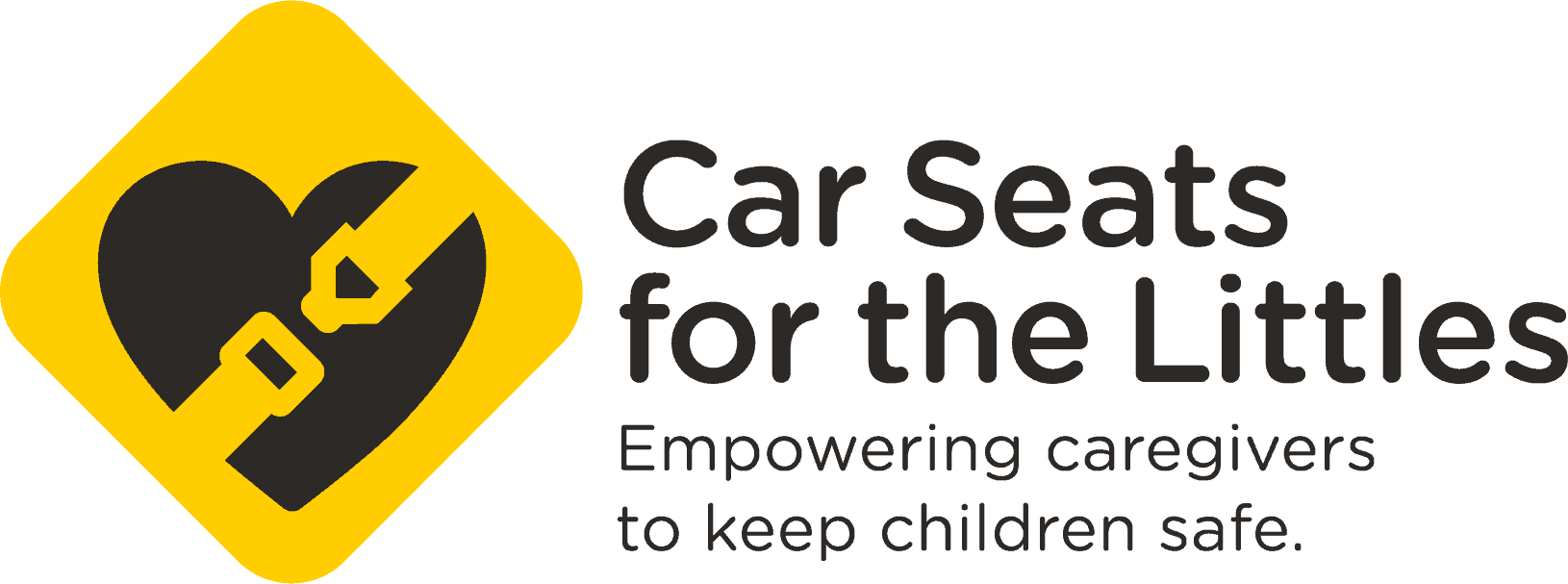As Child Passenger Safety Technicians, we often have the opportunity to work with parents and caregivers that are excited about car seat safety and interested in becoming CPSTs themselves. One of the most common questions they ask about the certification process is what does a CPST do, anyway?
How does one become certified?
 CPSTs are certified by the National Child Passenger Safety Certification Training Program; a partner with Safe Kids Worldwide, the National Highway Traffic Safety Administration, and the National Child Passenger Safety Board. The certification class is 3-4 days depending on how the lead instructor has laid out the agenda. The base fee is $85, but in some locations the organization teaching the class may have additional fees. Click here to find a course in your area.
CPSTs are certified by the National Child Passenger Safety Certification Training Program; a partner with Safe Kids Worldwide, the National Highway Traffic Safety Administration, and the National Child Passenger Safety Board. The certification class is 3-4 days depending on how the lead instructor has laid out the agenda. The base fee is $85, but in some locations the organization teaching the class may have additional fees. Click here to find a course in your area.
Who can be a CPST?
Anyone who is over the age of 18 can take the course. CPSTs are firefighters, police officers, paramedics, doctors, nurses, social workers, daycare providers, nannies, stay at home parents, and more. Many CPSTs become certified as part of their job.
Many CPSTs become certified simply because they have a passion for keeping kids safe and educating in their community. Some of those individuals end up transitioning into jobs where they are able to practice their passion and take home a paycheck for it, while many more continue to work as volunteers.
The CSFTL team is made up of a diverse group of CPSTs; we have several stay at home moms, a nurse, a former paramedic, a safety educator for the fire department, hospital educators, teachers, and more. We are all actively involved in volunteering our time with our local safety organization in addition to the time we spend contributing to CSFTL.

The team here at CSFTL have been privileged to use their certifications for many things. These things include:
- community car seat check events
- health and safety fairs
- MOMS and MOPS group presentations
- classes for new parents
- classes for CPS for daycare providers
- classes for NICU and post-partum care nurses
- creating an inspection station at a retail store
- creating an inspection station at an automotive repair shop
- checking seats at hospitals
- educating foster parents on CPS
- private car seat checks with families
- teaching child passenger safety classes for teen parents
- working for NHTSA doing a nationwide car seat survey
- providing online CPS education through forums, social media, and articles
The list goes on and on – the possibilities are endless for ways that we can reach parents with car seat safety information. This is just a small list of things our team has done with their certifications.
After the Course
Many new technicians finish the class ready to hit the ground running and start sharing their new found knowledge with the community. However, it often becomes clear early on that it can take some doing to create interest among the public.
Here are some tips for how you can create a successful program in your area:
- Seek out other technicians and instructors. Networking with other techs will help you stay in the loop to become involved in existing programs.
- Reach out! Offer to do a presentation or staff a booth about car safety anywhere you can. Moms groups, churches, daycares/preschools, health fairs, any type of family event your town or city hosts, etc.
- Get on the list! If your state or region has a listing of car seat technicians, make yourself available in their database, as well as the NHTSA database and the National CPS Certification database. Connect with birth educators in your area to offer car seat checks to expectant parents.
- Get on social media! Facebook is a great place to reach out to parents in your area that may need assistance using and installing their car seats. You can help answering questions in places like our Car Seats for the Littles Facebook group as well as Car-Seat.org. Find groups that are specific to your area to “advertise” your services and help with any questions that may come up. There are also CPST – specific Facebook groups, many local coalitions have their own, and CPS Tech Talk is a great place to network with technicians from all across North America.
- Find a partner. Maybe the local volunteer fire department doesn’t have the resources to staff a CPST, or a local hospital needs to have an “on-call” technician for post-partum nurses to call. Is there a boutique baby store that sells car seats in your area? Perhaps they would consider allowing a technician to use their location as a fit station.
Above all, don’t give up! Working as a Child Passenger Safety Technician isn’t always easy; there is a lot of information to keep up with to stay current, and sometimes we have to aid families in making tough choices. The rewards are worth every bit of the hard work though; giving caregivers all the information to help give their child the best chance of walking away from a crash is priceless.

